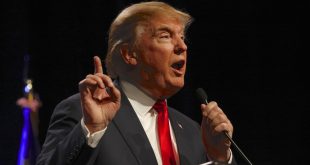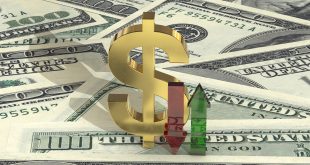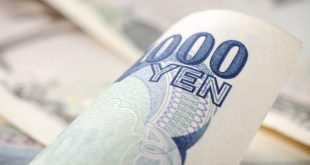European shares dropped to a 16-month low on Monday as investors feared a looming recession, with no signs of easing in the aggressive trade war initiated by U.S. President Donald Trump.
The pan-European STOXX 600 plummeted by 5.8% at 0722 GMT, marking its fourth consecutive day of declines and heading for its steepest one-day percentage drop since the COVID-19 pandemic.
Germany’s trade-sensitive benchmark index fell 6.1%, making it one of the hardest-hit markets in the euro area. At one point, the index was down more than 20% from its all-time high in March. If the index closes at its session lows, it will officially enter bear market territory.
Over the weekend, Trump reiterated that he would not strike a deal with China until the U.S. trade deficit was addressed, which sparked a fresh wave of selling across Asian markets.
“There was some hope over the weekend that maybe we would see the start of a negotiation, but the messages we’ve seen so far suggest that President Trump is comfortable with the market reaction and intends to continue on this course,” said Richard Flax, Chief Investment Officer at Moneyfarm.
European banks also seemed to be confirming their own bear market status, with Commerzbank (ETR:CBKG) and Deutsche Bank each shedding 10.7% and 10%, respectively, on Monday.
Shares of arms manufacturers, which had surged earlier this year due to the prospect of increased defense spending, also took a hit. Tankmaker Rheinmetall (ETR:RHMG) dropped 10%, while Hensoldt, Rheinmetall, and Renk saw declines between 8% and 12%.
Rising Trade Tensions and EU Countermeasures
The European Union is currently considering the approval of targeted countermeasures on up to $28 billion of U.S. imports in the coming days. The 27-nation bloc faces 25% import tariffs on steel, aluminum, and cars, along with “reciprocal” tariffs of 20% from Wednesday on almost all other goods.
The European Central Bank (ECB) has estimated that a blanket U.S. tariff would lower eurozone growth by 0.3 percentage points in the first year. If EU counter-tariffs on the U.S. are implemented, the damage to the eurozone’s economy could rise to 0.5 percentage points.
As the economic outlook worsens, investors have ramped up their bets on potential interest rate cuts by both the ECB and the U.S. Federal Reserve. Traders are now pricing the ECB’s deposit rate at 1.65% by December, down from 1.75% on Friday and 1.9% last week before Trump’s tariff announcement.
Analysts Lower Market Forecasts
Barclays has revised its year-end forecast for the STOXX 600 to 490 points, down from the previous forecast of 580, but acknowledged that providing a specific point forecast is challenging given the unprecedented nature of the crisis.
The benchmark index is now approximately 17% below its all-time high in March, before concerns about the economic fallout of Trump’s trade policies disrupted the global market rally.
 Noor Trends News, Technical Analysis, Educational Tools and Recommendations
Noor Trends News, Technical Analysis, Educational Tools and Recommendations





